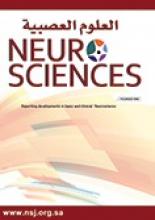Abstract
OBJECTIVE: To translate and test the reliability and validity of the 31-item epilepsy quality of life questionnaire (QOLIE-31) in Iranian epileptic patients.
METHODS: In order to standardize the questionnaire, using a standard “forward-backward” translation, cognitive debriefing, and cultural adaptation procedure, the English version of the QOLIE-31 was translated to Persian (the Iranian official language). The subjects were Epileptic patients, over 18 years old, referred to the Motaharri Clinic, Shiraz, Southern Iran from March 2007 to March 2008. The reliability and internal consistency of the questionnaire were assessed by Cronbach’s alpha coefficient. Validity was assessed using convergent and disconvergent validity through Spearman’s correlation.
RESULTS: Two hundred and eleven epileptic patients (88 females [41.7%], 123 males [58.3%]), with a mean ± SD age of 28.7±11.6 years were enrolled in the study. Reliability analysis showed a satisfactory result (Cronbach’s α=0.890). Internal consistency was satisfactory for both demographic and patients’ clinical characteristics (α≥0.70). The scaling success rates were 100% for convergent validity of each scale. Disconvergent validity for all 7 scales was good.
CONCLUSION: The Persian version of the QOLIE-31 questionnaire has good structural characteristics, is a reliable and valid instrument, and can be used for measuring the effect of epilepsy on the quality of life.
- Copyright: © Neurosciences
Neurosciences is an Open Access journal and articles published are distributed under the terms of the Creative Commons Attribution-NonCommercial License (CC BY-NC). Readers may copy, distribute, and display the work for non-commercial purposes with the proper citation of the original work.






